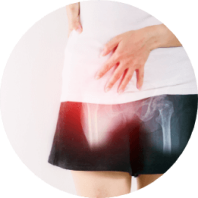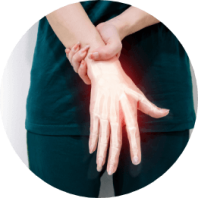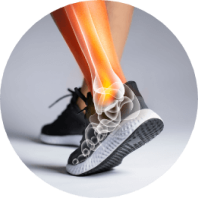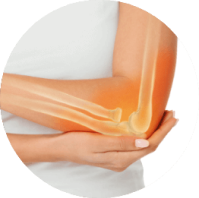Shoulder Pain Treatment
Causes of shoulder pain
Injury
Trauma from accidents, falls, or sports-related incidents can lead to
shoulder pain
Overuse
Repetitive motions or strain from activities like weightlifting, manual labour, or typing can result in shoulder pain.
Age-related degeneration
As we age, the tissues in the
shoulder can wear down,
causing discomfort.
Inflammatory conditions
Conditions like arthritis and tendinitis can cause inflammation and pain in
the shoulder.
Nerve compression
Pinched nerves or conditions like thoracic outlet syndrome can cause
shoulder pain.
Referred pain
Sometimes, issues in other body parts, such as the neck or upper back, can manifest as shoulder pain.
Common symptoms associated with shoulder pain
Common symptoms associated with shoulder pain can vary depending on the underlying cause of the pain. It’s important to pay attention to these symptoms to help identify the cause and seek treatment.
- Pain: Dull, aching, sharp, or throbbing pain in the shoulder area.
- Stiffness: Limited range of motion, making it difficult to perform daily activities.
- Weakness: Reduced strength in the affected shoulder.
- Swelling and inflammation: Visible or internal swelling and inflammation in the shoulder joint.
- Numbness or tingling: Sensations that may extend down the arm or into the hand.
- Popping or clicking: You may hear or feel clicking sounds or popping sensations when you move your shoulder, indicating joint instability or inflammation.
- Radiating pain: Pain from the shoulder can radiate to the neck, upper back, or down the arm.
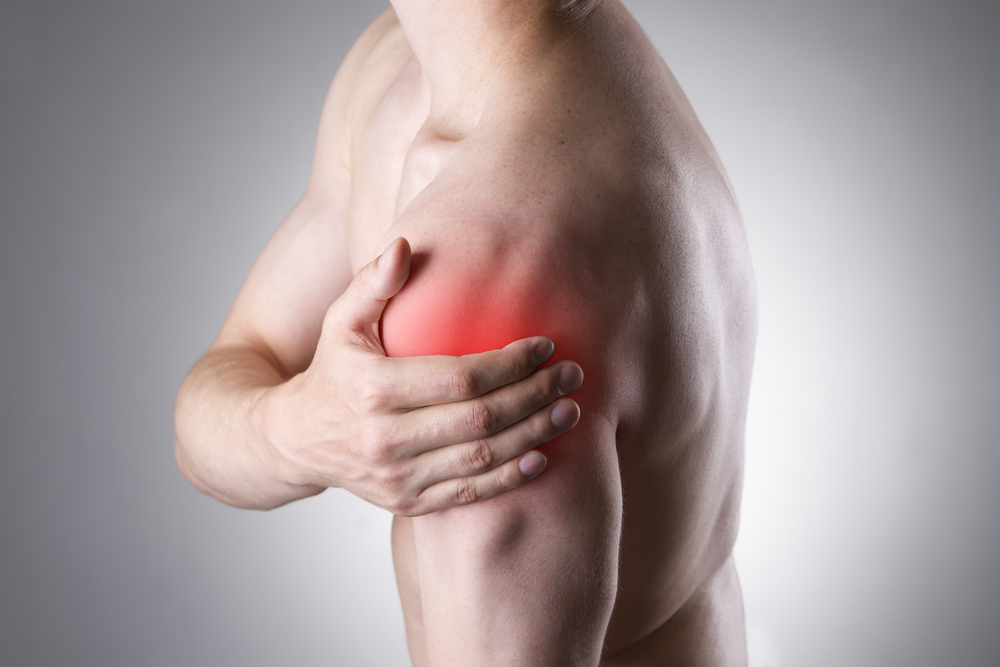
Non-surgical treatments for shoulder pain
- Rest and activity modification: Reducing or modifying activities that aggravate the shoulder.
- Physical therapy: Specialised exercises and stretches to improve strength and flexibility.
- Medications: Pain relievers and anti-inflammatory drugs to alleviate discomfort.
- Corticosteroid injections: Injections to reduce inflammation and provide relief.

Shoulder pain conditions that may respond well to non-surgical treatments
- Rotator cuff tendonitis
- Bursitis
- Labral tears
- Minor fractures
- Mild to moderate acromioclavicular joint arthritis
Surgical options for shoulder pain
Shoulder pain that requires surgery involves more severe or complex shoulder conditions that cannot be effectively managed through non-surgical treatments alone. The shoulder pain specialist will consider surgical intervention when non-surgical approaches have not provided adequate relief and the underlying issue requires a more direct and invasive solution.

Arthroscopy
Minimally invasive surgery to diagnose and treat shoulder conditions

Shoulder replacement
Replacing damaged joint surfaces with artificial components

Rotator cuff repair
Surgery to mend torn or damaged tendons
Shoulder pain conditions that may require surgery
Managing shoulder pain
Managing shoulder pain involves medical interventions and several self-care and lifestyle strategies. The following approaches can help alleviate discomfort, reduce the risk of future issues, and improve the overall health of your shoulder.

Rest and activity modification
Give your shoulder time to rest and heal. Avoid or modify activities that worsen the pain. Rest doesn't mean complete immobility; gentle movement can prevent stiffness.

Strengthening and stretching exercises
Physical therapy exercises can help improve shoulder strength, flexibility, and range of motion.

Heat and cold packs
Applying heat or cold packs to the affected area can help reduce pain and inflammation. Cold packs are usually beneficial for acute pain, while heat can be helpful for chronic pain and stiffness.

Supportive devices
Using braces or slings, as prescribed, can provide support and reduce strain on the shoulder during the healing process.

When to see a doctor for shoulder pain
- You cannot move your shoulder or arm.
- The shoulder appears deformed.
- There’s swelling or redness around the joint.
- Pain is accompanied by fever or unexplained weight loss.
Shoulder pain diagnosis
- Physical examination: Assessing range of motion, strength, and tenderness.
- Imaging tests: X-rays, MRIs, or ultrasound scans for detailed evaluation.
- Nerve conduction studies: To assess nerve function.
- Blood tests: To identify underlying systemic conditions.
An accurate diagnosis will enable us to create a personalised treatment plan for you, increasing the chances of a successful outcome and minimising unnecessary procedures.

Shoulder pain treatment in Singapore
The types of shoulder pain and its causes will vary from person to person. As such, the treatment methods used to treat you will depend on your specific condition.
At Cove Aesthetic Clinic, we recognise that every patient’s shoulder pain is unique and the diverse treatment approaches needed for successful resolution. Our team, comprising seasoned orthopaedic specialists, is dedicated to determining the root causes of your shoulder pain and tailoring a treatment plan for you.
Our ultimate goal is to support your complete recovery, enabling you to return to your active, fulfilling lifestyle. Book an appointment today to learn more about our treatments and cost.
Frequently Asked Questions
Conditions We Treat
